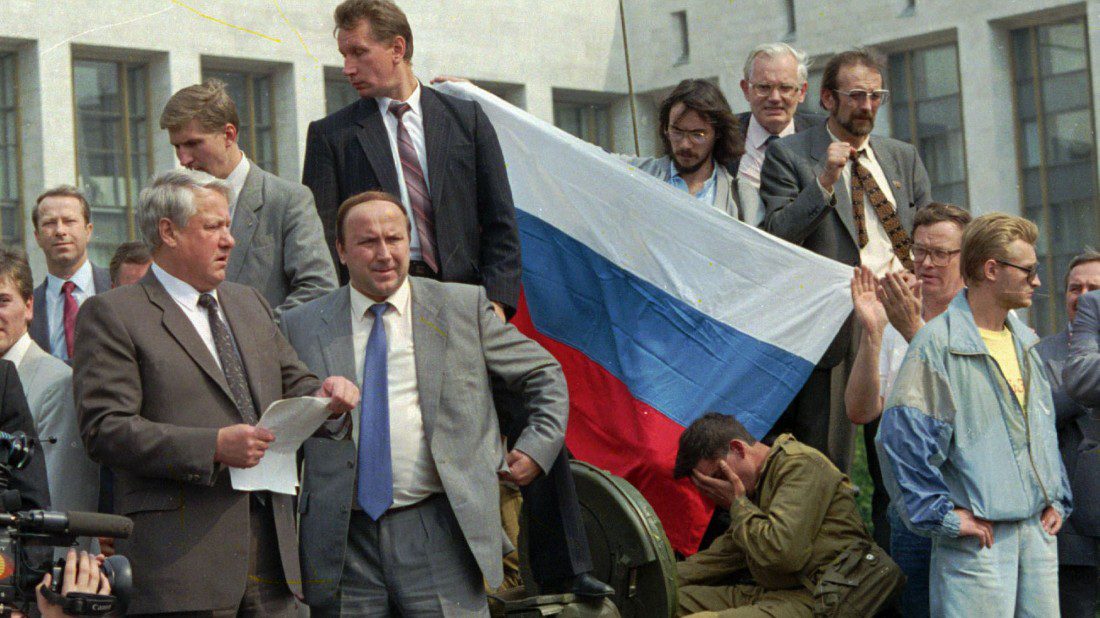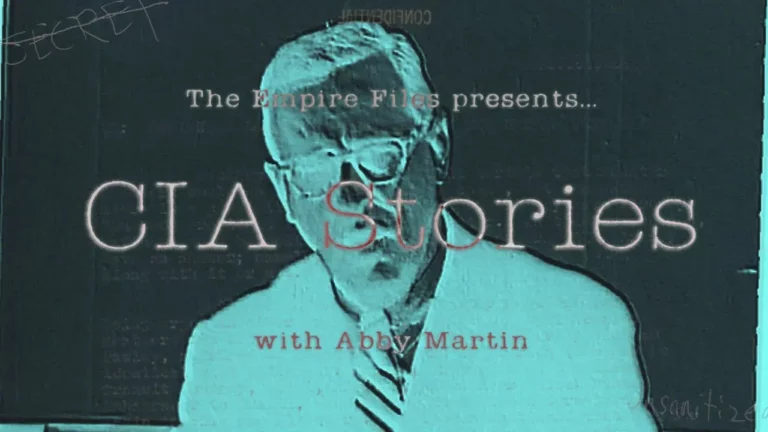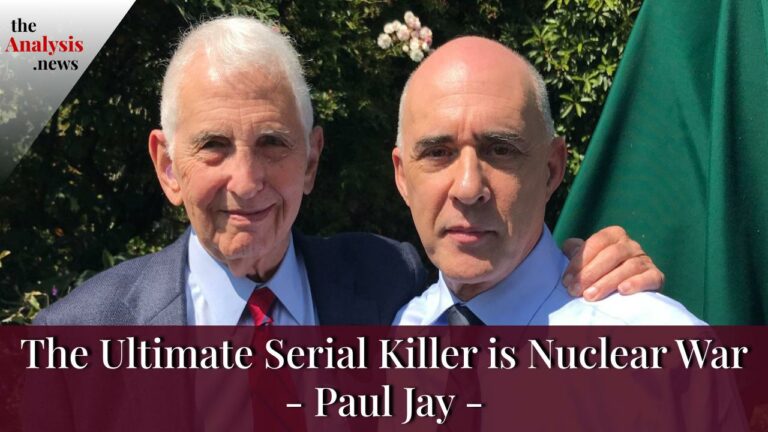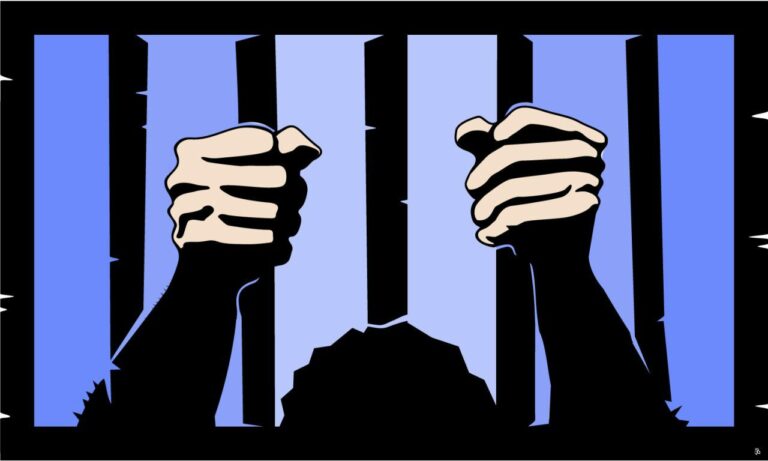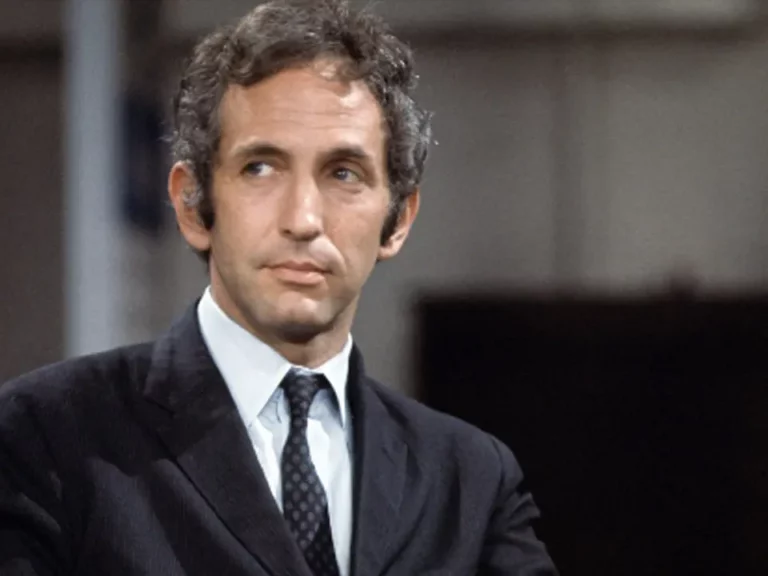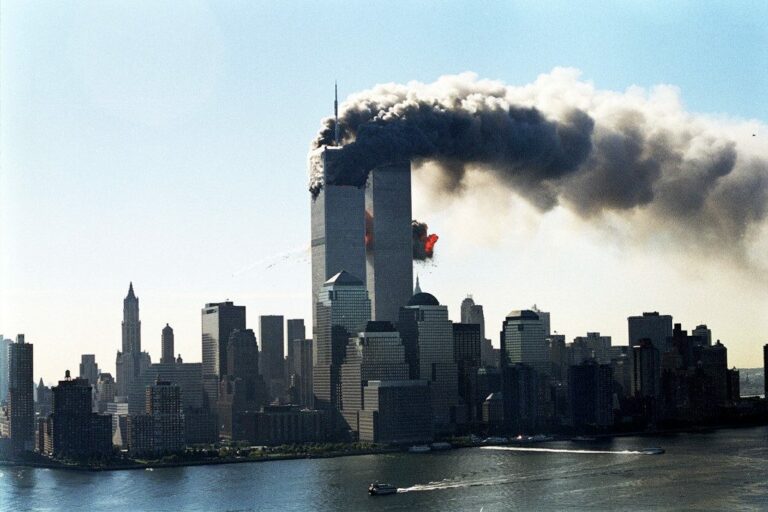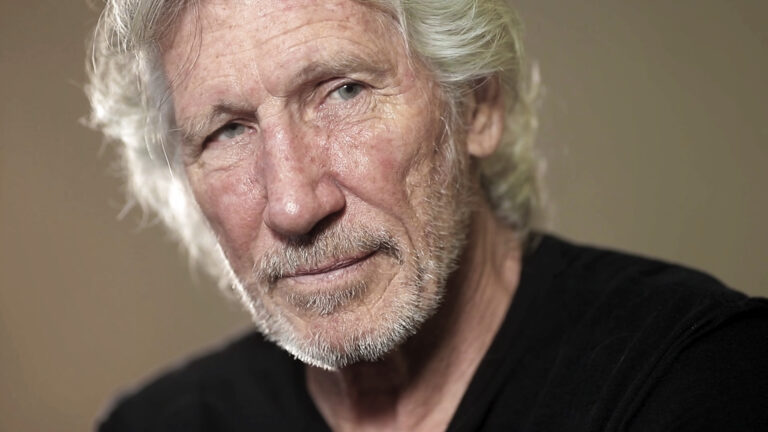I Returned from Vacation to Find the Soviet Union had Collapsed – RAI with Aleksandr Buzgalin (5/12)
On Reality Asserts Itself, Prof. Aleksandr Buzgalin says that he returned from a vacation in the countryside to find Gorbachev was arrested, Yeltsin was leader and the Soviet Union was no more – with host Paul Jay.
This is an episode of Reality Asserts Itself, produced July 16, 2018.
STORY TRANSCRIPT
PAUL JAY: Welcome back to Reality Asserts Itself on The Real News Network. I’m Paul Jay, and we’re continuing our discussion with Professor Alexander Buzgalin. Thanks for joining us again.
ALEXANDER BUZGALIN: I’m glad to be here and to talk with you.
PAUL JAY: I should say, we’re in New York City, this is not our normal studio. One more time, Professor Buzgalin teaches political economy and is Director of the Center for Modern Marxist Studies at Moscow State University. So, we got ourselves up to- you’re now on the Central Committee in your early thirties-
ALEXANDER BUZGALIN: And the Soviet Union is nearly collapsed.
PAUL JAY: And they’re blaming you for it. Well, they certainly did blame Gorbachev for it, and we’re talking about, you were saying that there’s a rise within the party and within the party leadership of people who want to get rich, who had kind of given up on the socialist ideals. I guess they either decided it isn’t working or didn’t matter because they want to get rich. And while the internal factors may have been the most important, the Americans are very active in all this. Their dream is to bring down the Soviet Union. Talk about that period, and you have a very unique viewpoint, being on the Central Committee.
ALEXANDER BUZGALIN: So, first of all, it was really an extremely contradictory situation, because from one hand, we had the growth of social creativity from below. We had the first attempts to build self-management in the enterprises. And the most that did it were people in big scientific production complexes. We had, in Soviet Union, like corporations, where we had research centers, production, social infrastructure, and so on. And typically, these groups, these classic corporations, had very skilled people and they had big intentions. And it was all Soviet Union council of worker’s collectives. A very interesting structure. And the last Congress, with one thousand delegates, where they participated, was very strong and important. And it’s not a well-known part of the story of the Soviet Union.
We had good interest in initiative of the young generation to build, on a cooperative basis, new houses for the life. It was very interesting initiatives in the Green Movement, which appeared from below, and so on and so forth. At the same time, from another hand, we had terrible growth of contradictions because criminal business, which existed in Soviet Union, became stronger because of the whole destruction of the institutional system. Weak institutions led to the growth of shadow economy and criminal business. A lot of former directors of state enterprises were waiting, that it will be privatization, and were trying to steal as much as possible of the resources.
PAUL JAY: This is before-
ALEXANDER BUZGALIN: Just before collapse of the Soviet Union.
PAUL JAY: People see it coming. What’s Gorbachev doing about this? Or does he want this to-
ALEXANDER BUZGALIN: Yeah, and- he was talking. And this is one of the problems. You know, there is this definition of revolutionary situation by Lenin, and he wrote very important things. Revolution came when those who are on the top cannot be rulers more, according to the old model. So, this is a crisis of the top. And we had crisis.
PAUL JAY: Not fit to rule.
ALEXANDER BUZGALIN: Yeah, not fit to rule. And people were trying to find another solution. And what was important, we had a lot of myths created with assistance of the West, but not by the West. One of them was a myth about market. And market, for majority of Soviet people, was associated with supermarket, with a lot of commodities. It was the strikes of the miners, a very interesting initiative from below, who wanted to change the situation. I participated in the Congress and the leader of the miner’s strike said, “We want to have capitalism, the factories will belong to the workers and not the Party and nomenklatura. We want to have capitalism, where we will have resources to buy whatever we want. We want to have capitalism, where everybody will have good apartments, and it will be no privileges of people who are rulers. We want to have capitalism where workers will decide what to do.”
PAUL JAY: They want to have capitalism without capitalists.
ALEXANDER BUZGALIN: Yeah, without capitalists, without unemployment, without social stratification, and so on. It was an illusion. And unfortunately, it was created by many contradictions inside Soviet Union, which we discussed before. And main contradiction was interconnected with concentration of the power in the hands of bureaucracy, and the money of social creativity of the masses, and attempts to build consumer society, conformist society. Socialism cannot be conformist, consumer society. Socialism must move in the direction of self-organization, social creativity, anti-conformism, if you want. It should be disalienation, but not conservation of alienation in consumerist form. I’m sorry for this professor’s language, but I cannot express this in any other terms. So, that’s why we had internal contradictions as main factor of self-destruction of this system. And we had chances for the changes, but here, a subjective factor could play a decisive role.
PAUL JAY: How do you get to a point, after years of bureaucratization- but something new enters the picture, because it’s not just bureaucratized, some mutation, of socialism. Now, people want to get rich and now people within the Party leadership and sections of the enterprises, within the elite, people have said enough, now we just want to cash in. How do you get to that?
ALEXANDER BUZGALIN: You already gave the answer, so I can say yes, you are right. And it was predictable. In the beginning of the Soviet Union, in writings of different people, from Mensheviks to Leon Trotsky, was made prognosis that if bureaucracy will have more and more power, and the control from below will be weak, social creativity will go down, the transformation of bureaucracy will be inevitable. They will have intention to transform themselves into the class of private owners who has both political power and economic power and no limitations, no frameworks.
Because even in bureaucratic period, in Brezhnev period of the Soviet Union, officials at the top had relatively small privileges. They had a lot of limits for their power and they had strong rules of the game. And so, the new generation who came, they wanted to have the same living standards as billionaires, as presidents and leaders of bourgeois countries. And that was main reason. Plus, as I said, decline, degradation of social creativity, led to the consumerism and conformism of majority of Soviet people. And conformism creates atmosphere where market system, capitalist system, is coming. It’s like a swamp where it’s impossible to have beautiful trees, where there will be only dirty grass and frogs.
PAUL JAY: So, talk about that period, the rise of Yeltsin and the last days of the Soviet Union.
ALEXANDER BUZGALIN: So, still this is a big question mark. What happens, why we had this artificial coup d’état, what was the role of Gorbachev, who was behind? I am not a person who has secret information, so I will not give special commands.
PAUL JAY: And we’re in 1991?
ALEXANDER BUZGALIN: It was August, 1991.
PAUL JAY: Where are you, what are you doing?
ALEXANDER BUZGALIN: I was in the vacation, so unfortunately, I could not participate in this process. I was in the countryside, in the forest, just to relax a little bit. It was my mistake. I didn’t think that it will be so quickly-
PAUL JAY: So, most of our audience doesn’t really know this story at all.
ALEXANDER BUZGALIN: So, in August, leaders of KGB and some other officials from the top said that Gorbachev is no more president of the Soviet Union. We have a special committee in emergency situations, and Gorbachev was formally arrested in his dacha in Crimea, where he was also on a rest. But then, they did nothing.
PAUL JAY: So, it’s essentially a coup.
ALEXANDER BUZGALIN: It was coup, but leaders of the military coup must arrest the opposition, after all. But they did nothing. Yeltsin came to the house where there was Parliament of Russian Federation, people were walking in the streets with protests.
PAUL JAY: And who is Yeltsin, why all of a sudden, Yeltsin? What’s the power behind Yeltsin?
ALEXANDER BUZGALIN: Okay, so that’s another story. One year ago, he was elected as president of Russian Federation inside Soviet Union. Soviet Union had like states in the U.S., but with more powerful structure. It was republics, fifteen republics, and Russia was the biggest and in the center. And Yeltsin was elected as president of Russia. So, informally, he has not too big power, because republics inside Federation were not so powerful as central government. But when Gorbachev was arrested, Yeltsin became in Moscow a key person, according to official status. And all opposition came to Yeltsin to protect against coup. And it was both really democratic forces and pro-bourgeois, quasi-democratic forces.
PAUL JAY: To protect against a coup from whom?
ALEXANDER BUZGALIN: To protect Yeltsin against those who organized the coup d’état. KGB leaders organized-
PAUL JAY: To protect Yeltsin from the KGB?
ALEXANDER BUZGALIN: From the KGB, yes.
PAUL JAY: What did the KGB want?
ALEXANDER BUZGALIN: KGB wanted to stop transformation led by Gorbachev to rebuild Soviet Union. It’s also important to say that in Caucasus and in Baltic states, republics in that period, was growth of nationalism and ideas to become separate states, not states in the Soviet Union. So, the idea was, “we will use military force, we will keep Soviet Union, and all Gorbachev experiments, we will stop.” They said, “we will keep freedom of speech, but with limitations,” these organizers of the coup, “we will continue some market reforms.”
PAUL JAY: And this was mostly driven out of the KGB?
ALEXANDER BUZGALIN: Some military leaders and a few people from- top officials from the Central Committee.
PAUL JAY: And they want to try to retain what’s left of the Soviet state.
ALEXANDER BUZGALIN: Yeah.
PAUL JAY: Yeltsin represents these “let’s get rich” factions inside.
ALEXANDER BUZGALIN: Yeah, but these guys did nothing. They didn’t arrest Yeltsin.
PAUL JAY: Why? KGB knows how to arrest people.
ALEXANDER BUZGALIN: Yes, but they did nothing. There are different explanations. Again, I cannot explain this phenomenon, myself. One of the explanations was that Gorbachev decided to play a role of the person who is not responsible for this, and then came to power again with the assistance of the KGB, simply to beat Yeltsin, who became leader of opposition in that period. Another explanation was that they did not have a final agreement of what has to be done, these leaders of the coup. But really, nobody knows. It’s a very strange story, very strange.
PAUL JAY: So, this famous photograph and videos of Yeltsin on the tanks, what is that, then, what goes on there?
ALEXANDER BUZGALIN: Yes, it was a few tanks and some soldiers in Moscow. But they did nothing. They were standing in the streets and did nothing. And the two guys who were killed-
PAUL JAY: This is outside the parliament buildings?
ALEXANDER BUZGALIN: Outside, yes. And two guys who were dead, officially, because tanks killed them- really nobody knows what happened in reality- but I think the tanks were going back from Moscow and they accidentally were- because it was crowded, and when they decided to move from the square, two persons were really killed. And then they were transformed into heroes.
PAUL JAY: So, the section of the KGB and army that arrested Gorbachev, they allowed Yeltsin to come to power. Why? Did they say, okay, we might as well get rich too?
ALEXANDER BUZGALIN: Really, I don’t have an explanation, as I said. For me, this is still a big question mark, what’s happened. No idea. Only what I can say is it’s a total crisis of the power. And the only person who was decisive and aggressive was Yeltsin.
PAUL JAY: You’re on the Central Committee. Do they have an emergency meeting, or the Party just starts to fall apart?
ALEXANDER BUZGALIN: I didn’t have time to come back from this village. It’s Russia, it’s not so simple, even for a member of the Central Committee. When I was back, all was solved. And the Party also was paralyzed. It was total paralysis of legislative and executive organs. It was self-destruction of the elite.
PAUL JAY: So, you’re sitting in your cottage, on vacation- this is what, is it playing out for you on T.V.? I mean, do you know what’s going on?
ALEXANDER BUZGALIN: First of all, I didn’t have any information. On T.V., it was on barely. The whole time only barely and nothing else. When I received- telephone was not working. It was a real village, and it was one telephone three kilometers from this place. So, when I found this telephone, I could not reach anybody in Moscow. So, after one day, I went to the regional center and received, more or less, information. But when I was back in Moscow, it was nothing.
PAUL JAY: Were you surprised or expecting it?
ALEXANDER BUZGALIN: No, I was very surprised, of course. And I was afraid that something like that can happen, but not coup. I was afraid that it will be coup organized by republican leaders, Yeltsin and leaders of the Baltic Republics, Caucasus Republics, and so on.
PAUL JAY: And you don’t think the KGB was actually in cahoots with Yeltsin?
ALEXANDER BUZGALIN: I don’t think so. I think what was real- the only hypothesis which I can propose is the following; it was informal, indirect, not final agreement with Gorbachev, and Gorbachev, it was his personal problem. He was not decisive. He could not make exact decisions, he was changing decisions very often. And he doesn’t know what has to be done. And he was a very weak leader, and for such periods, it’s necessary to have a strong leader, because personality, in the period of revolution, plays a big role, bigger than usual. In a stable system, personality is not important, or nearly not important. In the period of revolutions, strong personality and strong political organization is very important if this personality is on the top.
PAUL JAY: Well, in the next segment, we’ll pick up. You come back from vacation, and it’s not the Soviet Union, it’s Russia.
ALEXANDER BUZGALIN: Yeah, the Soviet Union is absent, the Communist Party is absent, and the whole situation is completely new, yes.
PAUL JAY: All right, so join us for the next segment of our interview with Professor Buzgalin on The Real News Network.
END
Podcast: Play in new window | Download
